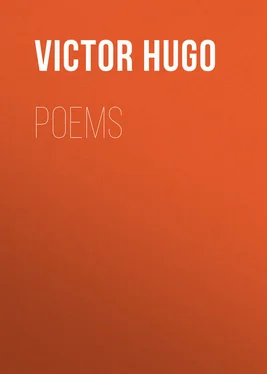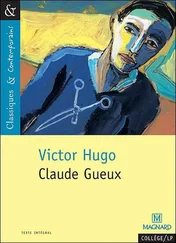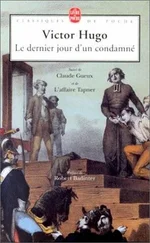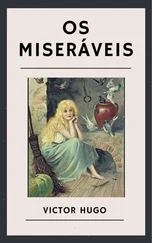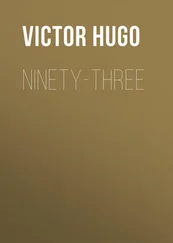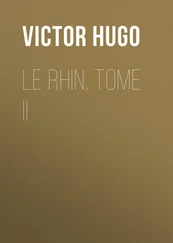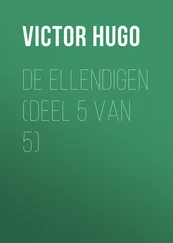Victor Hugo - Poems
Здесь есть возможность читать онлайн «Victor Hugo - Poems» — ознакомительный отрывок электронной книги совершенно бесплатно, а после прочтения отрывка купить полную версию. В некоторых случаях можно слушать аудио, скачать через торрент в формате fb2 и присутствует краткое содержание. Жанр: literature_19, foreign_antique, foreign_prose, на английском языке. Описание произведения, (предисловие) а так же отзывы посетителей доступны на портале библиотеки ЛибКат.
- Название:Poems
- Автор:
- Жанр:
- Год:неизвестен
- ISBN:нет данных
- Рейтинг книги:3 / 5. Голосов: 1
-
Избранное:Добавить в избранное
- Отзывы:
-
Ваша оценка:
- 60
- 1
- 2
- 3
- 4
- 5
Poems: краткое содержание, описание и аннотация
Предлагаем к чтению аннотацию, описание, краткое содержание или предисловие (зависит от того, что написал сам автор книги «Poems»). Если вы не нашли необходимую информацию о книге — напишите в комментариях, мы постараемся отыскать её.
Poems — читать онлайн ознакомительный отрывок
Ниже представлен текст книги, разбитый по страницам. Система сохранения места последней прочитанной страницы, позволяет с удобством читать онлайн бесплатно книгу «Poems», без необходимости каждый раз заново искать на чём Вы остановились. Поставьте закладку, и сможете в любой момент перейти на страницу, на которой закончили чтение.
Интервал:
Закладка:
Must the wild lay my faithful harp can sing,
Be like the hymns which mortals, kneeling, hear;
To solemn harmonies attuned the string,
As, music show'ring from his viewless wing,
On heavenly airs some angel hovered near.
THE PORTRAIT OF A CHILD
("Oui, ce front, ce sourire.")
{Bk. V. xxii., November, 1825.}
That brow, that smile, that cheek so fair,
Beseem my child, who weeps and plays:
A heavenly spirit guards her ways,
From whom she stole that mixture rare.
Through all her features shining mild,
The poet sees an angel there,
The father sees a child.
And by their flame so pure and bright,
We see how lately those sweet eyes
Have wandered down from Paradise,
And still are lingering in its light.
All earthly things are but a shade
Through which she looks at things above,
And sees the holy Mother-maid,
Athwart her mother's glance of love.
She seems celestial songs to hear,
And virgin souls are whispering near.
Till by her radiant smile deceived,
I say, "Young angel, lately given,
When was thy martyrdom achieved?
And what name lost thou bear in heaven?"
BALLADES. – 1823-28.
THE GRANDMOTHER
("Dors-tu? mère de notre mère.")
{III., 1823.}
"To die – to sleep." – SHAKESPEARE.
Still asleep! We have been since the noon thus alone.
Oh, the hours we have ceased to number!
Wake, grandmother! – speechless say why thou art grown.
Then, thy lips are so cold! – the Madonna of stone
Is like thee in thy holy slumber.
We have watched thee in sleep, we have watched thee at prayer,
But what can now betide thee?
Like thy hours of repose all thy orisons were,
And thy lips would still murmur a blessing whene'er
Thy children stood beside thee.
Now thine eye is unclosed, and thy forehead is bent
O'er the hearth, where ashes smoulder;
And behold, the watch-lamp will be speedily spent.
Art thou vexed? have we done aught amiss? Oh, relent!
But – parent, thy hands grow colder!
Say, with ours wilt thou let us rekindle in thine
The glow that has departed?
Wilt thou sing us some song of the days of lang syne?
Wilt thou tell us some tale, from those volumes divine,
Of the brave and noble-hearted?
Of the dragon who, crouching in forest green glen,
Lies in wait for the unwary —
Of the maid who was freed by her knight from the den
Of the ogre, whose club was uplifted, but then
Turned aside by the wand of a fairy?
Wilt thou teach us spell-words that protect from all harm,
And thoughts of evil banish?
What goblins the sign of the cross may disarm?
What saint it is good to invoke? and what charm
Can make the demon vanish?
Or unfold to our gaze thy most wonderful book,
So feared by hell and Satan;
At its hermits and martyrs in gold let us look,
At the virgins, and bishops with pastoral crook,
And the hymns and the prayers in Latin.
Oft with legends of angels, who watch o'er the young,
Thy voice was wont to gladden;
Have thy lips yet no language – no wisdom thy tongue?
Oh, see! the light wavers, and sinking, bath flung
On the wall forms that sadden.
Wake! awake! evil spirits perhaps may presume
To haunt thy holy dwelling;
Pale ghosts are, perhaps, stealing into the room —
Oh, would that the lamp were relit! with the gloom
These fearful thoughts dispelling.
Thou hast told us our parents lie sleeping beneath
The grass, in a churchyard lonely:
Now, thine eyes have no motion, thy mouth has no breath,
And thy limbs are all rigid! Oh, say, Is this death ,
Or thy prayer or thy slumber only?
ENVOY.
Sad vigil they kept by that grandmother's chair,
Kind angels hovered o'er them —
And the dead-bell was tolled in the hamlet – and there,
On the following eve, knelt that innocent pair,
With the missal-book before them.
THE GIANT IN GLEE
("Ho, guerriers! je suis né dans le pays des Gaules.")
{V., March 11, 1825.}
Ho, warriors! I was reared in the land of the Gauls;
O'er the Rhine my ancestors came bounding like balls
Of the snow at the Pole, where, a babe, I was bathed
Ere in bear and in walrus-skin I was enswathed.
Then my father was strong, whom the years lowly bow, —
A bison could wallow in the grooves of his brow.
He is weak, very old – he can scarcely uptear
A young pine-tree for staff since his legs cease to bear;
But here's to replace him! – I can toy with his axe;
As I sit on the hill my feet swing in the flax,
And my knee caps the boulders and troubles the trees.
How they shiver, yea, quake if I happen to sneeze!
I was still but a springald when, cleaving the Alps,
I brushed snowy periwigs off granitic scalps,
And my head, o'er the pinnacles, stopped the fleet clouds,
Where I captured the eagles and caged them by crowds.
There were tempests! I blew them back into their source!
And put out their lightnings! More than once in a course,
Through the ocean I went wading after the whale,
And stirred up the bottom as did never a gale.
Fond of rambling, I hunted the shark 'long the beach,
And no osprey in ether soared out of my reach;
And the bear that I pinched 'twixt my finger and thumb,
Like the lynx and the wolf, perished harmless and dumb.
But these pleasures of childhood have lost all their zest;
It is warfare and carnage that now I love best:
The sounds that I wish to awaken and hear
Are the cheers raised by courage, the shrieks due to fear;
When the riot of flames, ruin, smoke, steel and blood,
Announces an army rolls along as a flood,
Which I follow, to harry the clamorous ranks,
Sharp-goading the laggards and pressing the flanks,
Till, a thresher 'mid ripest of corn, up I stand
With an oak for a flail in my unflagging hand.
Rise the groans! rise the screams! on my feet fall vain tears
As the roar of my laughter redoubles their fears.
I am naked. At armor of steel I should joke —
True, I'm helmed – a brass pot you could draw with ten yoke.
I look for no ladder to invade the king's hall —
I stride o'er the ramparts, and down the walls fall,
Till choked are the ditches with the stones, dead and quick,
Whilst the flagstaff I use 'midst my teeth as a pick.
Oh, when cometh my turn to succumb like my prey,
May brave men my body snatch away from th' array
Of the crows – may they heap on the rocks till they loom
Like a mountain, befitting a colossus' tomb!
THE CYMBALEER'S BRIDE
("Monseigneur le Duc de Bretagne.")
{VI., October, 1825.}
My lord the Duke of Brittany
Has summoned his barons bold —
Their names make a fearful litany!
Among them you will not meet any
But men of giant mould.
Proud earls, who dwell in donjon keep,
And steel-clad knight and peer,
Whose forts are girt with a moat cut deep —
But none excel in soldiership
My own loved cymbaleer.
Интервал:
Закладка:
Похожие книги на «Poems»
Представляем Вашему вниманию похожие книги на «Poems» списком для выбора. Мы отобрали схожую по названию и смыслу литературу в надежде предоставить читателям больше вариантов отыскать новые, интересные, ещё непрочитанные произведения.
Обсуждение, отзывы о книге «Poems» и просто собственные мнения читателей. Оставьте ваши комментарии, напишите, что Вы думаете о произведении, его смысле или главных героях. Укажите что конкретно понравилось, а что нет, и почему Вы так считаете.
